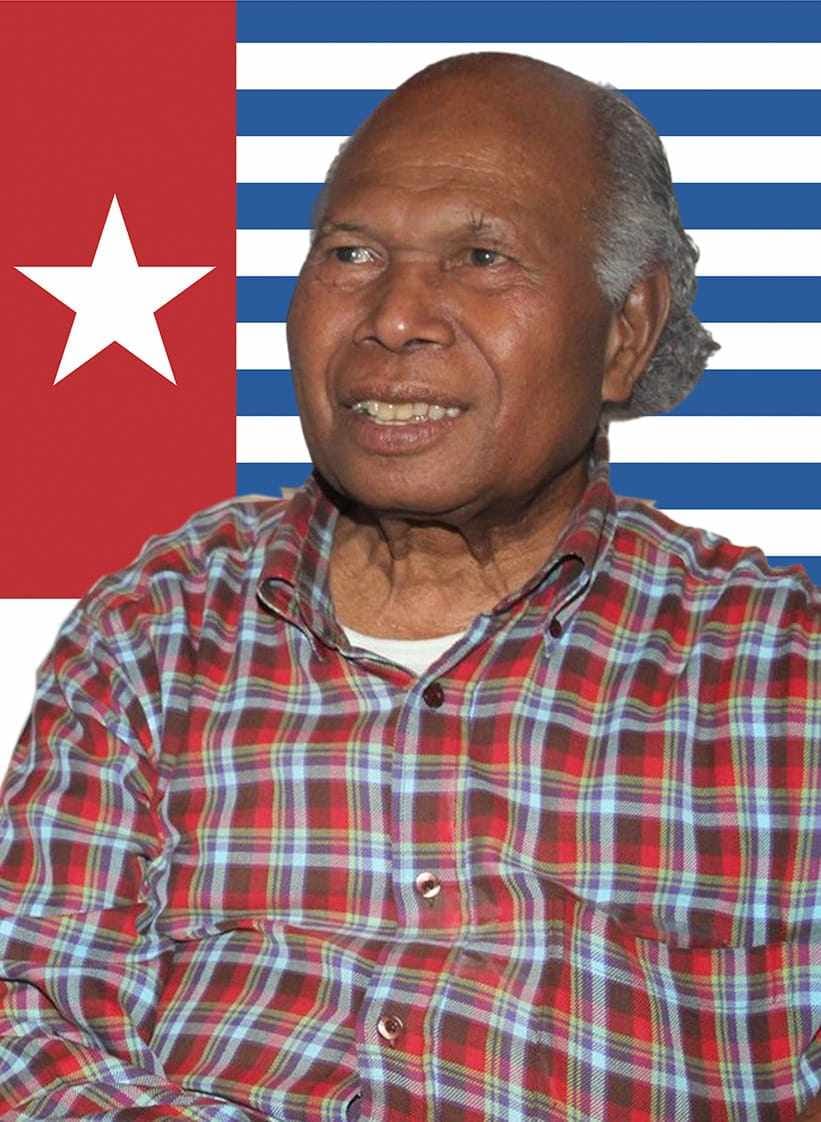Member of Parliament (MP) for Tanna Constituency and a former Minister of Foreign Affairs, Jotham Napat, is Vanuatu’s first Special Envoy on Oceans and Maritime Boundaries/Climate Diplomacy.
His appointment was made by Deputy Prime Minister (DPM) and Minister responsible for the Ministry of Foreign Affairs, International Cooperation and External Trade (MOFAICET), Matai Seremaiah, yesterday.
In presenting his letter of appointment, DPM Seremaiah reminded the newly appointed Special Envoy of the huge challenges on ocean resources and the urgent regional and global efforts in urgently addressing these challenges.
He also gave his assurance and confidence on the outstanding leadership role that MP Napat will deliver under this mandate, and called on all relevant oceans stakeholders at all levels to work closely with the Special Envoy towards achieving a sustainably managed ocean and its resources for generational use and livelihoods.
In his response, the new Special Envoy on Oceans and Maritime Boundaries said his prime mission is firstly to defend Vanuatu’s sovereign territorial waters by securing maritime boundaries with France and Fiji, and to negotiate peacefully with France over the Mathew and Hunter Islands’ territorial dispute.
“Secondly, but equally important I am committed to expediting national and regional efforts to promote and protect the vision of our National Ocean Policy with a strong emphasis on saving our vanishing marine biodiversity, increasing our fishing yield through 100% good management and cleaning our oceans by addressing marine plastic pollution,” MP Napat said.
“Last, but not least is to ensure that our maritime borders with our neighbor countries remain secure under a joint management framework not only to safeguard our oceans resources but also to give recognition to our historical and cultural linkages with our neighbouring countries.”
DPM Seremaiah said he is delighted and at the same time, very confident in what lies ahead that will be to Vanuatu’s gain.
He called on national stakeholders, including chiefs, community leaders, people, and government agencies, to provide the Special Envoy and his team all the necessary support to walk the talk collectively.
The new Special Envoy brings with him vast and extensive experience in both the public sector and as a long-standing MP.
He has previously served as Minister in various portfolios from the Ministry of Infrastructure and Public Utilities, to the Ministry of Tourism, Commerce, Trade and Ni-Vanuatu Business.
More recently he was the Minister responsible for Foreign Affairs, International Cooperation and External Trade, holding also the role of Deputy Prime Minister in both this and the former portfolio.
In the public service, Mr. Napat previously held important senior positions as a Director and Director General.
DPM Seremaiah said with the caliber and skills MP Napat brings, he has full confidence in Napat’s capacity to take up his key national responsibilities.
These new diplomatic positions are vital to Vanuatu’s national and global interests because the oceans are a living giant that shape every aspect of our livelihoods. Since the beginning of time, life on earth is decided by how the largest ecosystem responds to the deteriorations in climate conditions.
He stated the oceans are indispensable to Mother Earth, as lives involve matters of seas and water. Therefore, if not managed well, the oceans will self-destruct, affecting the people and the generations of tomorrow. That is why Vanuatu, like many like-minded countries in the region and the world, is taking action because of the irreplaceable value the oceans and its resources bring to human survival.
“We, the people of this nation, have toiled and lived in this environment for generations. However, as we are experiencing, and we all know, the oceans are facing the largest threat, imposing serious challenges to borders and national sovereignty,” Seremaiah said.
“As living examples, we bear witness to the degrading health of the oceans through marine plastic pollution and the loss of coral reefs due to warmer temperatures.”
He drew national attention to the grave situation with the oceans and marine environment, saying the Government of Vanuatu led by Prime Minister (PM) Charlot Salwai is committed to doing more in better managing and sustaining ocean resources for the people’s livelihood now and in the future.
Seremaiah said the Special Envoy’s role will primarily involve overseeing major assignments this year, including coordinating preparations for commemorating the UN-declared World Oceans Day on June 8 and determining the location for the government’s first National Oceans Summit.
A main objective of the summit will be to launch the Oceans Road Map of 2025 to 2030, encompassing the strategy for releasing and revising the Oceans National Policy, the Marine Spatial Plan for Vanuatu, and the Oceans Act – a landmark development.
The Special Envoy will support ongoing efforts to gain global support for the International Court of Justice (ICJ) Advisory Opinion (AO) on the adverse impact of climate change.
Climate change and oceans cannot be separated; therefore, he will also be expected to provide leadership in national institutional reform that brings centrality to the sustainable management and the coordination of oceans and marine resources, it is for these reasons that the appointment of a Special Envoy on oceans, maritime boundaries, and climate diplomacy is imperative, he said.
Source: VDP








